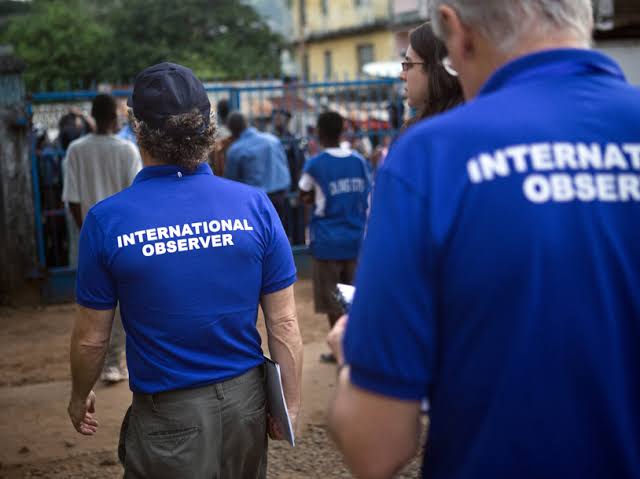US Won’t Observe Uganda’s Election As Accreditation Gets Denied
 United States ambassador to Uganda has on Wednesday the embassy has canceled plans to observe the country’s tense presidential election on Thursday, citing a decision by electoral authorities to deny accreditation to most members of the observation team.
United States ambassador to Uganda has on Wednesday the embassy has canceled plans to observe the country’s tense presidential election on Thursday, citing a decision by electoral authorities to deny accreditation to most members of the observation team.
The purpose of a diplomatic observation of elections is to demonstrate interests in a free, fair, peaceful, and inclusive electoral process.
Diplomatic observers are not participants or advisors in the electoral process. Rather, they informally observe the conduct of elections, following strict standards of impartiality, non-interference, and compliance with local laws.
The Government of Uganda has supported such U.S. observer efforts in multiple previous Ugandan elections.
Ambassador Natalie E. Brown expressed “profound disappointment” over the accreditation denial in a statement, saying more than 75% of the accreditations requested had been denied.
The statement reads;
With only 15 accreditations approved, it is not possible for the United States to meaningfully observe the conduct of Uganda’s elections at polling sites across the country. As we have stated previously, the United States takes no side in Uganda’s upcoming elections. We support a free, fair, peaceful, and inclusive electoral process.
It added;
Without the robust participation of observers, Uganda’s elections will lack the accountability, transparency and confidence that observer missions provide.
The U.S. embassy’s statement came the morning after longtime Ugandan President Yoweri Museveni spoke harshly against Facebook and unnamed outside groups he accused of “arrogance.”
Read Also: Uganda Orders Shutdown Of All Social Media Apps Ahead Of General Election
Uganda’s government has repeatedly alleged that foreigners are working in support of the opposition.
Museveni’s main challenger, singer and lawmaker known as Bobi Wine, has been accused of being “an agent of foreign interests,” which he denies.
He announced that his government had shut down access to social media and blasted Facebook after the social network removed Ugandan accounts linked to his reelection campaign.
Museveni on Facebook said;
That social channel you are talking about, if it is going to operate in Uganda, it should be used equitably by everybody who wants to use it. If you want to take sides against the (ruling party), then that group will not operate in Uganda.
Facebook this week removed some Ugandan accounts because they engaged in alleged coordinated inauthentic behavior.
The allegations of outside interference have contributed to a charged atmosphere, with Museveni deploying the military in the streets of urban centers where authorities fear the opposition is planning riots that could overwhelm the regime.
Wine, whose real name is Kyagulanyi Ssentamu, insists his campaign is nonviolent and he urges his supporters not to be intimidated by the heavy military deployment in Kampala, the capital.
The 38-year-old politician has captured the hearts of many at home and abroad in his generational clash with the 76-year-old Museveni, who has rebuffed calls for his retirement after 34 years in power.
At least 54 people were killed in November as the security forces put down riots sparked by the arrest of Wine, whose rallies were frequently broken up by police purportedly enforcing coronavirus control measures.
His supporters allege that security forces are cracking down on his supporters. Many have suffered beatings, and at least 49 of Wine’s associates and supporters have been criminally charged.
The European Union, which also is not deploying an observer mission, said in a statement on Tuesday that excessive use of force by the security forces had tarnished the electoral process.
Ugandan polls are often marred by allegations of rigging and militarization. The country has never seen a peaceful transfer of power since independence from Britain in 1962.
Via Washington Post.
